|
ESJF would like to thank the following guests for making this screening so meaningful. Kwangmin Kim, Executive Director of Korea NGO Center in Osaka, provided the audience with clear answers to their questions and background information on educational injustice being committed against Korean descents living in Japan. Miho Kim Lee of Eclipse Rising provided great translations and also fielded questions from the audience. Informational flyers sent by Kyunghee Ha of Eclipse Rising, from Japan, were very helpful in giving further context about this state-organized ethnic discrimination through education. We thank Jenny Chan, co-founder and executive director of Pacific Atrocities Education, for making her center available for both screenings. ESJF would like to thank the members of Eclipse Rising, Nikkei Resisters, One Heart for Justice, Youth Forum Fukuoka (YFF), and Justice for "Comfort Women" United Kindom for attending. ESJF is especially grateful to Director Chanyu Ko for making this screening possible. It was a great evening of much-needed exposure to rarely known racial and educational injustice, discussion, and reflection. This film has been nominated for this year's Tokyo Documentary Film Festival. To learn more about Korean Schools in Japan, please click here. ESJF deeply appreciates our friends and guests from Korea, Japan, and England. It is so inspiring to see the international community coming together in the pursuit of justice for all. アイたちの学校
아이들의 학교 Korean Schools in Japan This historiographical documentary on Korean schools in Japan from the mid-1940s to 2018 exposes state-sanctioned ethnic discrimination and injustice while delivering an awe-inspiring message of hope. Eclipse Rising, Education for Social Justice Foundation, and Nikkei Resisters are proud to bring this documentary to the United States for its first screening outside of Japan. Special guests from Japan will be available for questions and comments after the screening. Director: Chanyu Ko Production: “Ai’s Hakkyo Production” Committee Narration: Hana Kang, one of the main actors in the movie Spirits Homecoming, is featured and narrates along with Kiyohara Masatsugu Please direct any inquiries on future screenings of Korean Schools in Japan to [email protected]
0 Comments
The screening My Name is Kim Bokdong on the 21st was fully packed. ESJF would like to thank the two inspiring speakers, who have devoted so much energy to the restoration of the human rights of Japanese military sex slaves. Former Congressman Mike Honda spoke on the importance of education and active civic engagement. Former SF City Supervisor Eric Mar echoed the importance of education on sidelined history such as "comfort women" through amplifying the voices of the victims. On behalf of SF City Supervisor Gordon Mar, Eric also thanked Meehyang Yoon and the Korean Council for bringing this powerful and moving documentary to San Francisco. Among many guests that evening, ESJF would like to thank Becky and Charles Shao, co-founders of APTSJW, for attending the screening. We'd also like to extend our thanks to the members of Eclipse Rising, Nikkei Resisters, One Heart for Justice, Youth Forum Fukuoka (YFF), and Justice for "Comfort Women" United Kindom for attending. A big thank you goes to the SFSU students who attended. ESJF especially thanks to two guests who took a six-hour-long train ride from Bakersfield to come to the screening. Most of all, we are so grateful to the Korean Council, an international nongovernmental organization that has been fighting to resolve the issues of Japanese military sexual slavery and to prevent the recurrent sexual violence committed against women during wartime for the past nearly 30 years. Meehyang Yoon is Chair of the Board of the Korean Council. Sunghee Oh is the Secretary of Human Rights and Solidarity Department, and Haesul Kim is the Coordinator of Human Rights and Solidarity Department. Despite the remarkable heat (84 degrees Fahrenheit!), all attendees stayed for the length of the screening and many attended the discussion after. Peace Girl Statue and Yunsu Jo's painting greeted everyone. This film will be playing in London on October 28 at the London East Asian Film Festival (LEAFF). For more information, go to https://dochouse.org/cinema/screenings/leaff-my-name-kim-bok-dong My Name is Kim Bokdong is a documentary that premiered in May at the Jeonju International Film Festival and opened in theaters on August 8 in South Korea.
Come see the movie and witness the power of the collective activism led by Bokdong Kim to bring justice to Japanese military sex slaves. Thanks to the Korean Council for hosting the documentary tour in several cities in the States in September. Outside of these showings, the documentary won't be available for viewing until much later. Click here for the movie review in the Korea Herald. About Bokdong Kim (1926-2019): Once a Japanese military sex slave, Bok-Dong Kim later became an advocate for peace and a human rights activist. At the age of fourteen, she was forcibly taken by the Japanese military and sent to various countries, including China, Hong Kong, Malaysia, Indonesia, and Singapore, following their invasion route. Eight years after her mobilization as a Japanese military “comfort woman,” she returned home. In March 1992, she made a public testimony and began her activism. After she testified at the first Asian Solidarity Conference for the Resolution of the Issue of Military Sexual Slavery by Japan in August 1992, she testified at the World Conference on Human Rights held by the United Nations in Vienna, Austria, the 2000 Women's International War Crimes Tribunal on Japan's Military Sexual Slavery, and other occasions. Beginning in 2012, she carried out international campaigns at the UN Human Rights Council (UNHRC) and in the United States, England, Germany, Norway, and Japan, speaking of a world without war and victims of sexual violence due to armed conflicts. She also endeavored to provide financial aid to Korean schools in Japan, which suffer discrimination. The schools for students of Korean descent living in Japan are often excluded from the tuition subsidy program. Kim Bokdong lived at a home called “Peaceful Our House” (평화의 우리집), provided by the Korean Council, from 2010 until her passing in 2019. She passed away on January 28, 2019, and about two weeks later, on February 12, Gordon Mar, SF City Supervisor, issued a posthumous certificate of honor for her tireless work in advocating for peace and fighting for human rights. She held onto hope until the day she passed away: “Although sometimes I question whether or not our situation is hopeful, I know we need to hold onto hope. I do. Please follow me. Let’s gather our strength and not forget about hope. Let’s hold onto hope together.” https://mailchi.mp/623e923806ca/esjf-september-newsletter
|
CategoriesCategories |
Proudly powered by Weebly

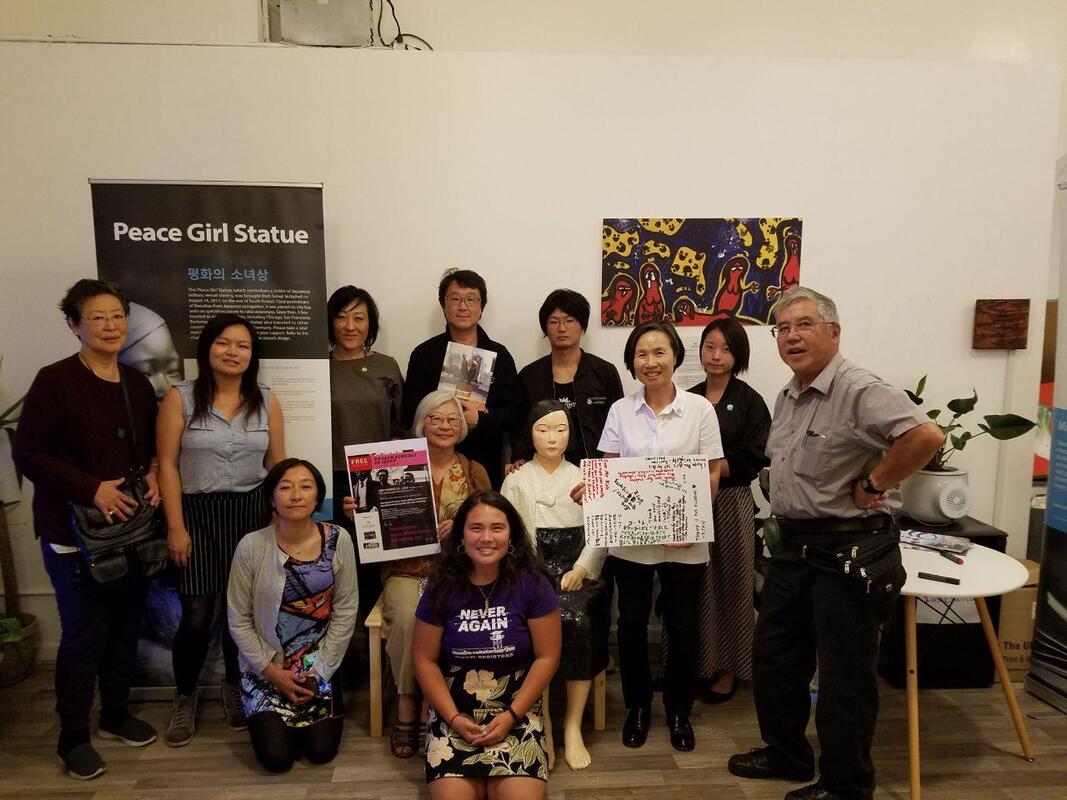
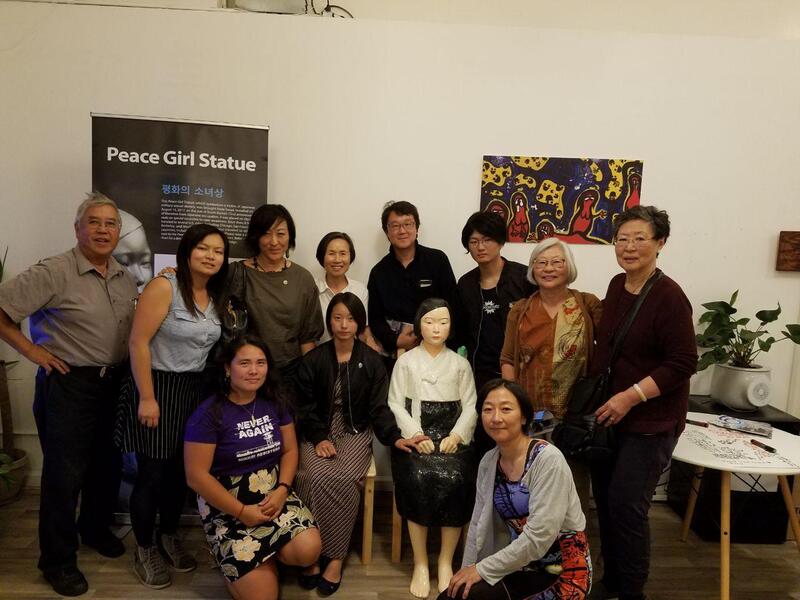
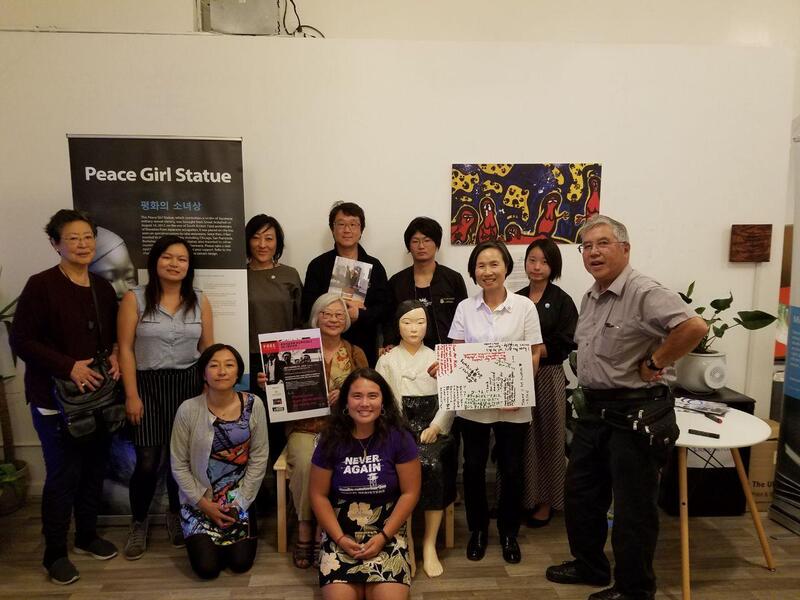
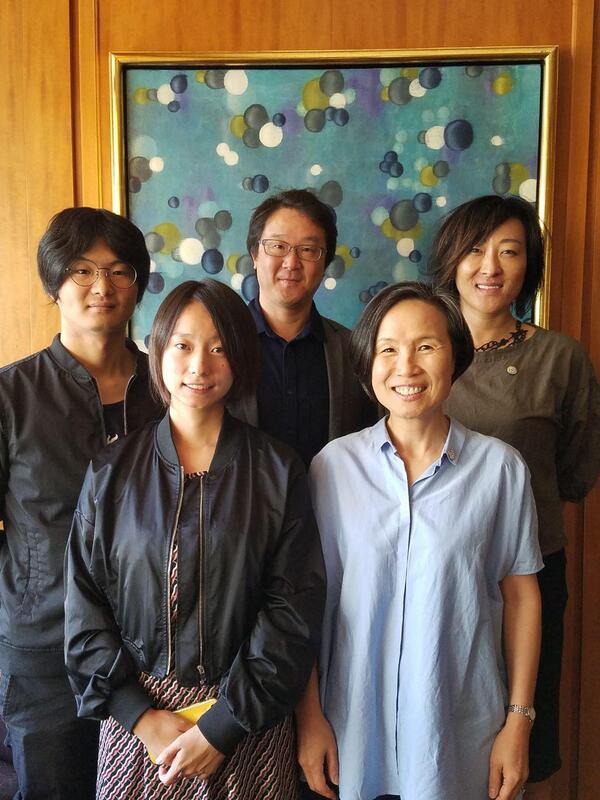
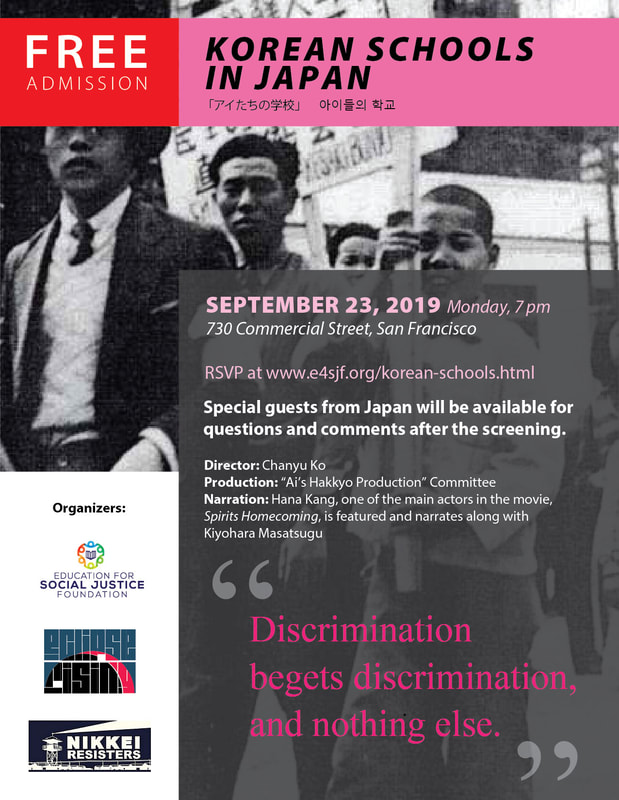
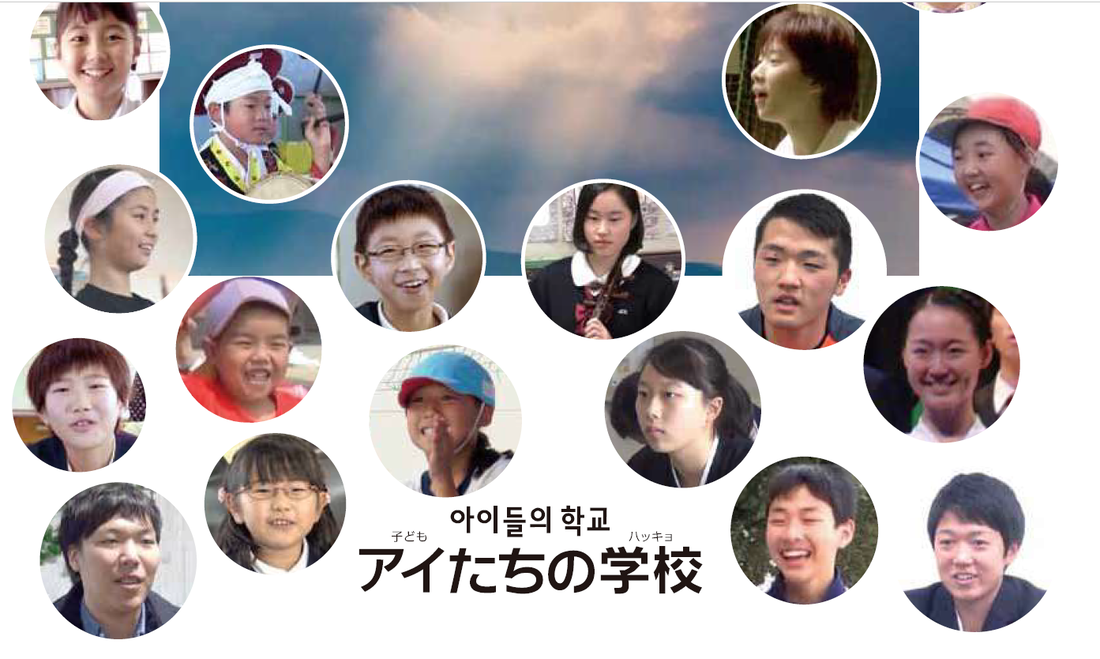
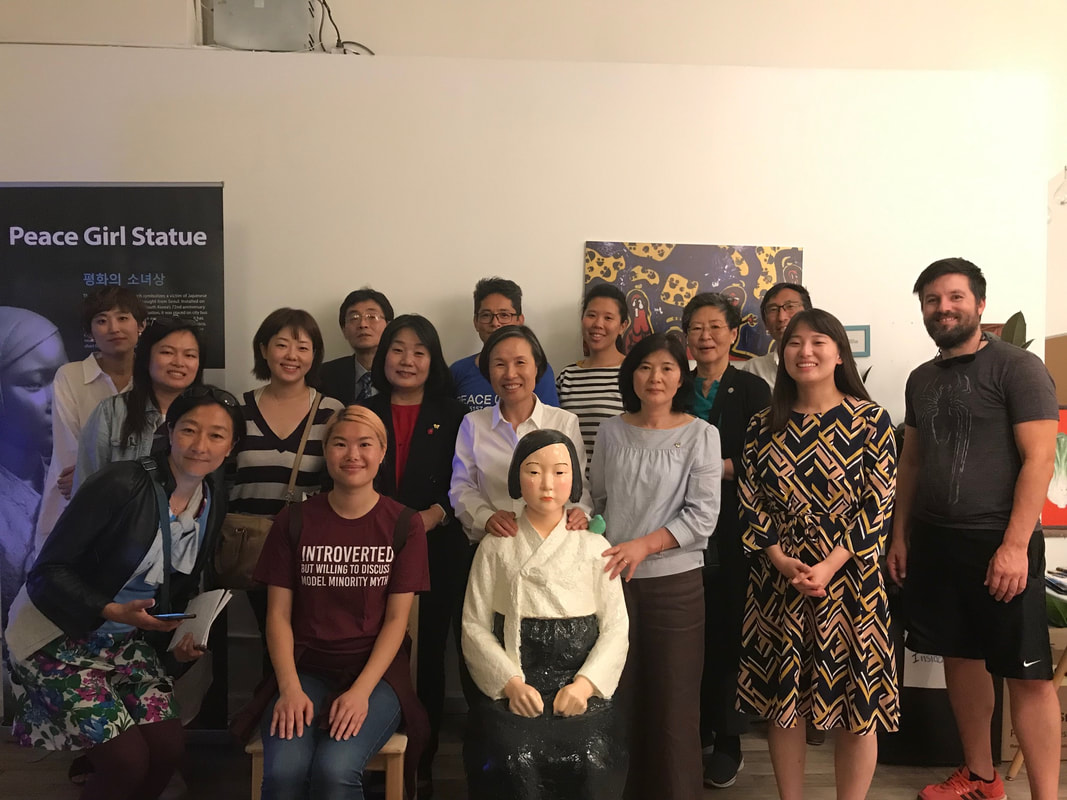
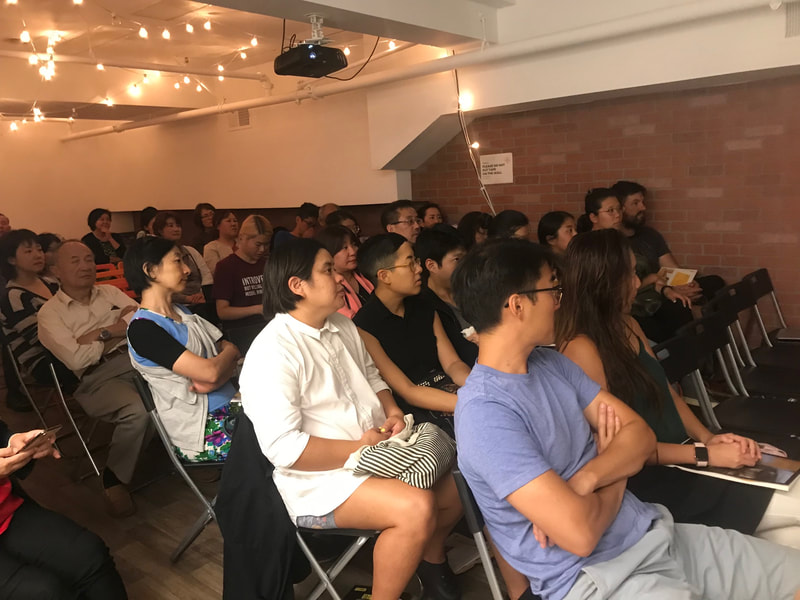
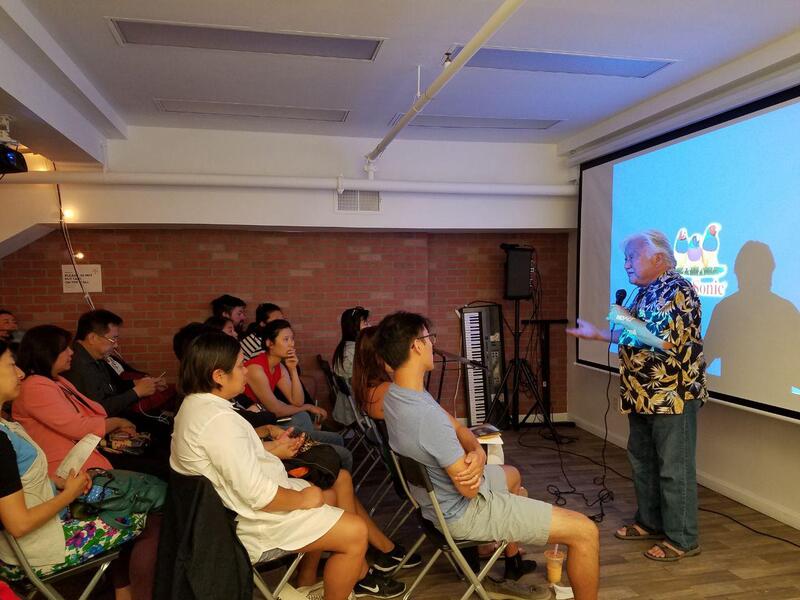
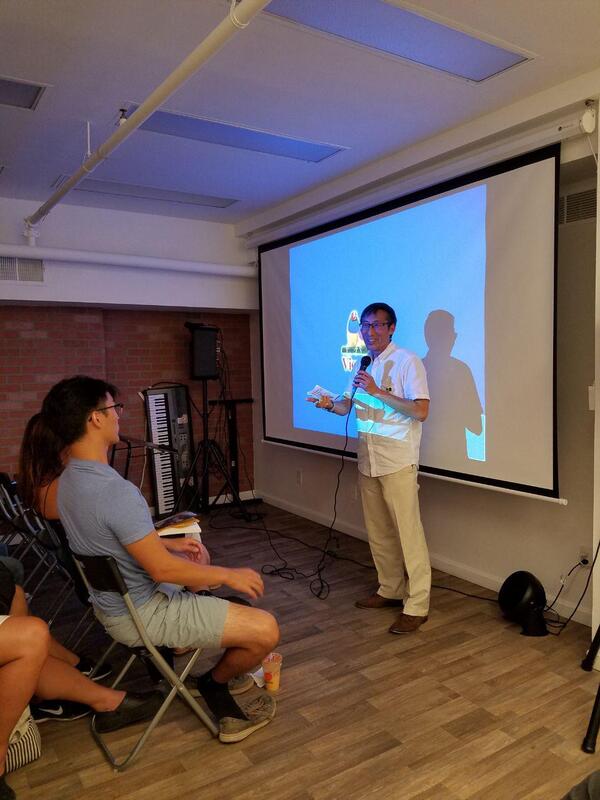
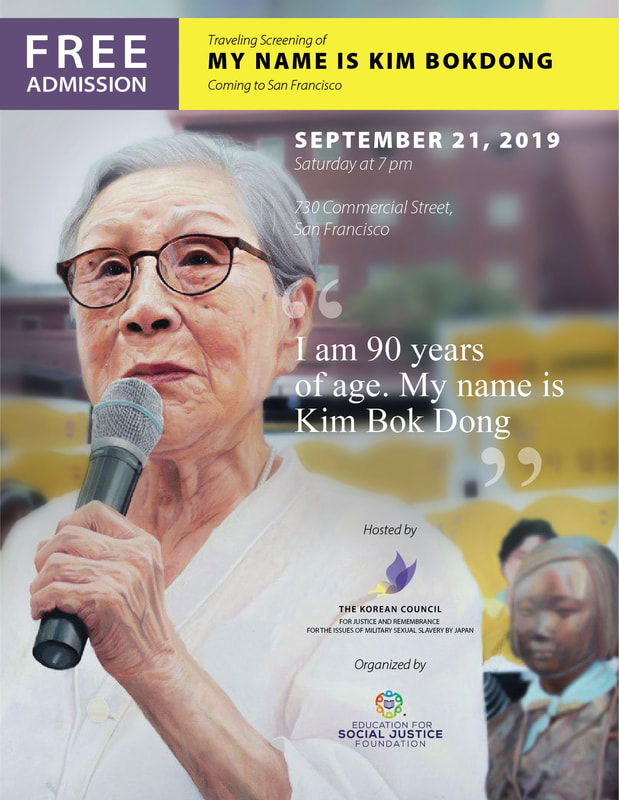
 RSS Feed
RSS Feed